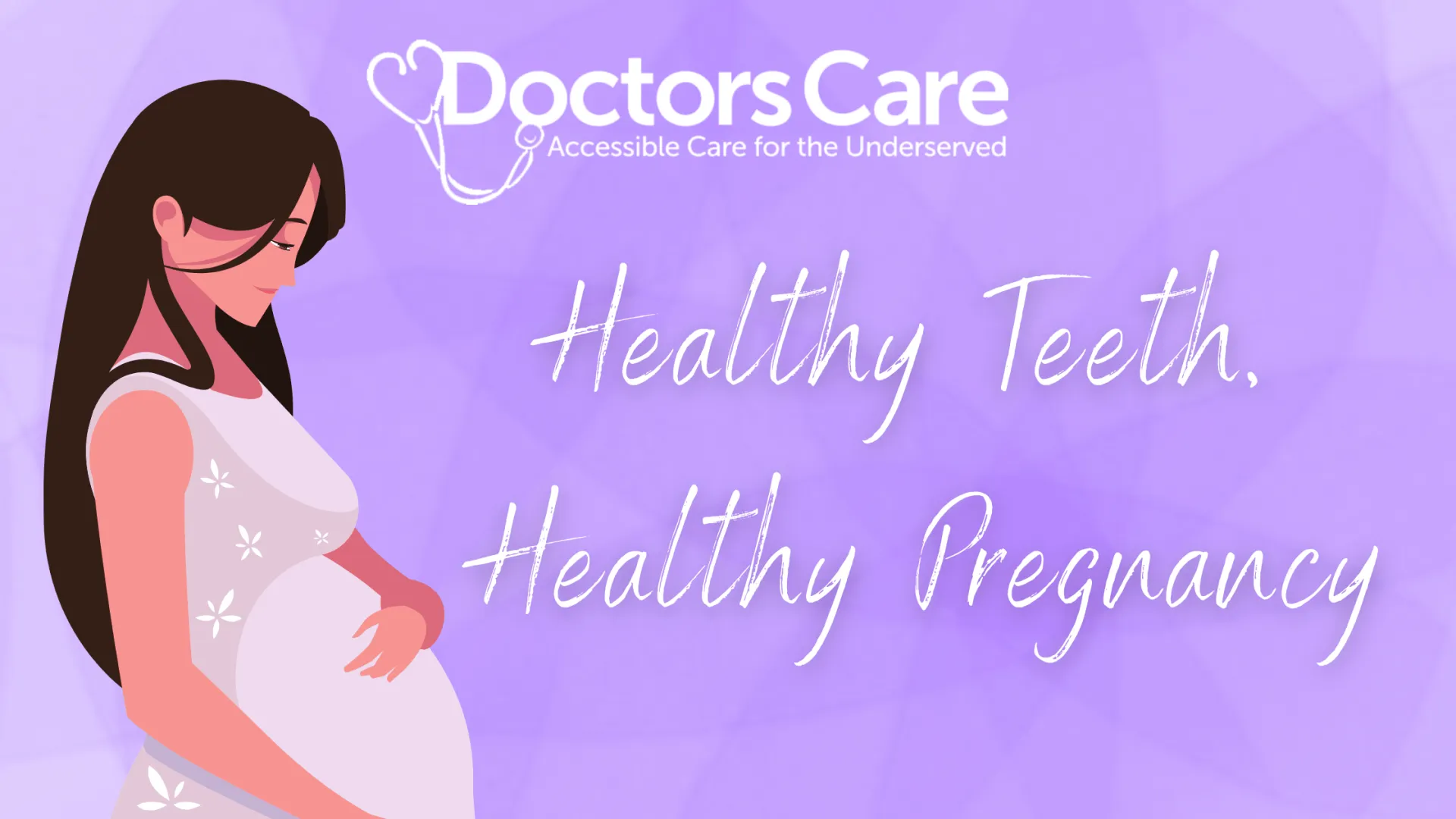Did you know that oral health is an important part of prenatal care (medical care you get during pregnancy)? Given that poor oral health during pregnancy can lead to poor health outcomes for the mother and baby, including preterm birth and low birth weight, pregnant women should have regular cleanings and visits to their oral hygienist and dentist!
How does pregnancy affect dental health?
Changes in your body during pregnancy can affect your teeth and gums. For example:
- When you are pregnant, you have increased levels of certain hormones, like progesterone and estrogen in your body. These hormones can increase your risk for certain oral health problems.
- Your eating habits may change. You may eat more of certain foods during pregnancy than you did before you were pregnant.
- You may brush and floss your teeth less than you did before you got pregnant . This may be because your gums are tender or you’re more tired than usual. For some women, brushing and flossing may cause nausea (feeling sick to your stomach).
How can these changes increase the risk for certain dental problems during pregnancy?
- Cavities (also called tooth decay or caries). These are small, damaged areas on the surface of your teeth. You can pass the bacteria that causes cavities to your baby during pregnancy and after birth, causing problems for your baby’s teeth later in life.
- Sixty to seventy-five percent of pregnant women have gingivitis, an early stage of periodontal disease that occurs when the gums become red and swollen from inflammation that may get worse by changing hormones during pregnancy.
- Loose teeth. High levels of the hormones progesterone and estrogen during pregnancy can temporarily loosen the tissues and bones that keep your teeth in place.
- Periodontal disease (also called periodontitis or gum disease). This causes serious infection in the gums and problems with the bones that support the teeth. Your teeth may get loose, and they may have to be removed. Periodontitis can lead to bacteria in the bloodstream. This is a serious condition that needs immediate treatment.
- Non-cancerous pregnancy tumors (also called pyogenic granuloma) are lumps that form on the gums, usually between teeth. They can be caused by having too much plaque (a sticky film containing bacteria that forms on teeth). These tumors usually go away on their own after giving birth. In rare cases, they may need to be removed by your health care provider.
- Tooth erosion. If you have vomiting from morning sickness, your teeth may be exposed to too much stomach acid. This acid can harm the surface of your teeth.
If you are pregnant and uninsured or on Medicaid, you may be eligible to have dental cleanings every three months. Call Doctors Care at (303) 730-1313 to schedule a dental cleaning today!
Sources:
Pregnancy and Oral Health, CDC




